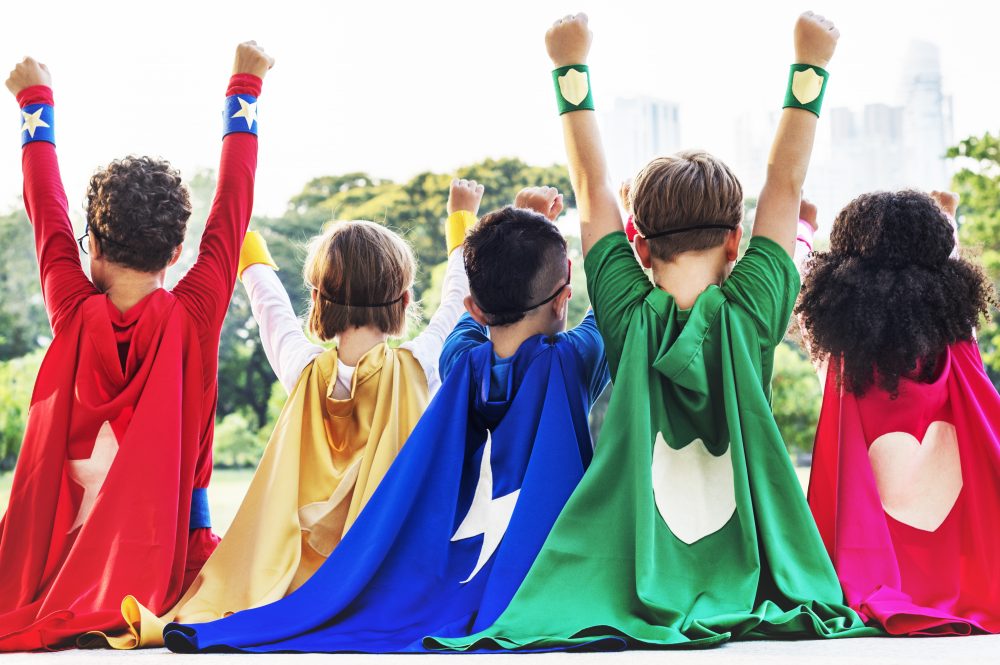Disney princesses and the flood of recent superheroes might be teaching our children lessons we don’t want them to learn.
Researchers at Brigham Young University (BYU) recently completed a study which showed that 4–year–olds remember the aggression of superhero movies, but not the reasons behind the aggression.
Furthermore, study authors found that the “preschooler’s engagement with superheroes was related to increased physical and relational aggression 1 year later.” But did the youngsters show any prosocial or defending behaviors, like a superhero does? Nope.
“So many preschoolers are into superheroes and so many parents think that the superhero culture will help their kids defend others and be nicer to their peers,” said BYU family life professor Sarah M. Coyne, “but our study shows the exact opposite. Kids pick up on the aggressive themes and not the defending ones.”
In this study, researchers asked the children about their favorite superheroes, why they liked a certain character, etc. A fifth of the kids said they liked a character because of some violent skill:
- “He’s big and can punch.”
- “He smashes and gets angry.”
- “Because he can smash and destroy everything.”
Most responses were benign, however.
“I believe you can talk about superhero culture with kids in a really positive way,” said professor Coyne to the Deseret News. “Superheroes really are defenders on a lot of levels. But the media children are exposed to is so aggressively violent for that age that it’s hard to pick up on anything else.”
If you think about it, superhero plotlines and relationships these days aren’t very simple; in fact, they are probably difficult for a 4-year-old to understand. This may be why small children don’t grasp too much except the very in-your-face violence. Most superhero movies today aren’t designed for young kids, but many parents encourage their kids to like Spider-Man, Iron Man, Batman, etc. It’s a complicated world of adult-themed blockbusters, animated spin-offs and Super-Man underpants.
Coyne says that parents don’t need to shut our superheroes entirely, but should simply expose their children to the superhero world in moderation, mixed in with exposure to lots of other admirable role models.
The Princess Problem
Professor Coyne completed related research last year, but about Disney princesses and their effect on gender-stereotypical behavior. Published in Child Development, the study found that for both boys and girls who had viewed Disney Princess media, there was more female gender-stereotypical behavior a year later.
This shouldn’t be terribly surprising, or terribly upsetting. But there can be issues for girls who adhere too heavily to “princess” or female stereotypes.
“We know that girls who strongly adhere to female gender stereotypes feel like they can’t do some things,” said Coyne in a press release. “They’re not as confident that they can do well in math and science. They don’t like getting dirty, so they’re less likely to try and experiment with things.”
For boys, however, princesses might provide some counterbalance to the ultra masculine characters of superheroes.
The takeaway for parents is to simply be cautious about how affected your daughters are by princess depictions. And make sure to emphasize the many qualities of these animated characters, not just beauty.
Sources: Journal of Abnormal Psychology, Child Development, news.byu.edu


No Comment